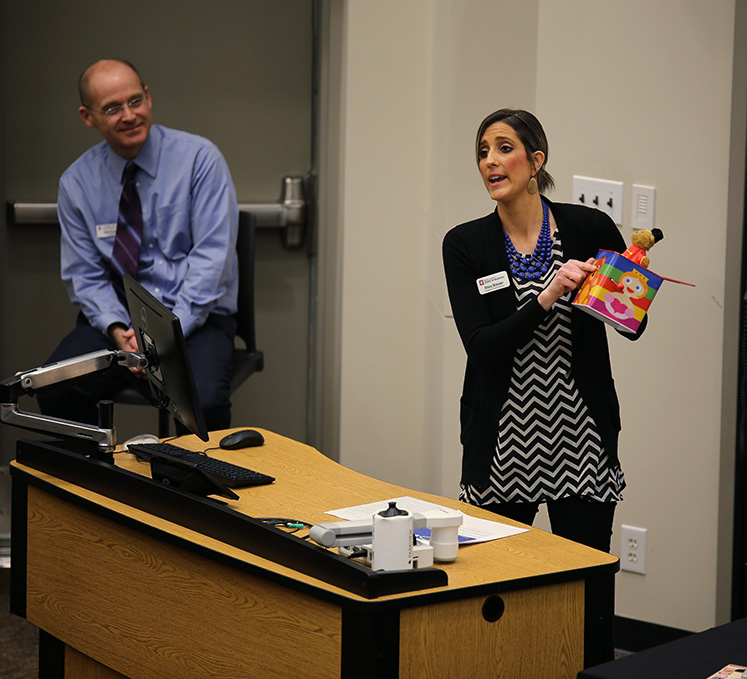Armstrong Teachers Encourage Students to Embrace Change in the Classroom
The teachers stressed that nothing should be a distraction from the reason they all got into teaching: helping students
When fourth grade teacher Stacy Blosser teaches her students math, she sometimes uses props – specifically, a cowboy hat.
Blosser explained how thinking outside the box (using a jack-in-the-box to prove her point) is critical to not only teaching but also reaching everyone in the classroom. She was one of eight Armstrong Teacher Educator Award winners answering the question "Teachers as Revolutionaries?" for the Spring discussion panel speaking to an auditorium packed with School of Education students. The Armstrong teachers shared stories of how they embraced change and challenges when it comes to making sure all their students grasp the material.
“You owe that to your kids,” Kara Parker, a high school teacher in Bloomington, said. “We’re going to get there, no matter if it takes me an hour or two weeks of you coming in after school. Be revolutionary and make sure in your teaching you reach all students and not just the easy ones.”
Linda Golston had to take on a completely different way of teaching—project-based learning—when she got a job at a New Tech school. After doubting if she could stay a teacher, she took on the challenge: “Think differently: that would be my challenge to you. You are going to be the links that get the students to their end product.”
Along with being an Armstrong teacher, Jean Russell is also the 2016 Indiana Teacher of the Year. Her teaching revolution came in the form of getting involved in educational policy when she was asked to be on the ISTEP replacement panel. It was something she initially resisted, until she realized how important it was for teachers to share their experiences with legislators.
“You teachers have a voice. It is not at the table unless somebody sits there,” Russell said. “Now that my eyes are opened, they can’t be closed. I beg of you to not spend 25 years of your career with your head in the sand about policy.”
Change, whether with students or standards, is an inevitable part of teaching. The Armstrong teachers stressed that nothing should be a distraction from the reason they all got into teaching: helping students.
Blosser ended her talk with this message: “Don’t let curriculum, colleagues or high stakes tests deter you from your values as a teacher. Don’t let those changes compromise what you think is best for students. Definitely be flexible but always be an advocate for your students.”
 Stacy Blosser, a fourth grade teacher at West Noble Elementary School, explained how thinking outside the box is critical to reaching everyone in the classroom.
Stacy Blosser, a fourth grade teacher at West Noble Elementary School, explained how thinking outside the box is critical to reaching everyone in the classroom.